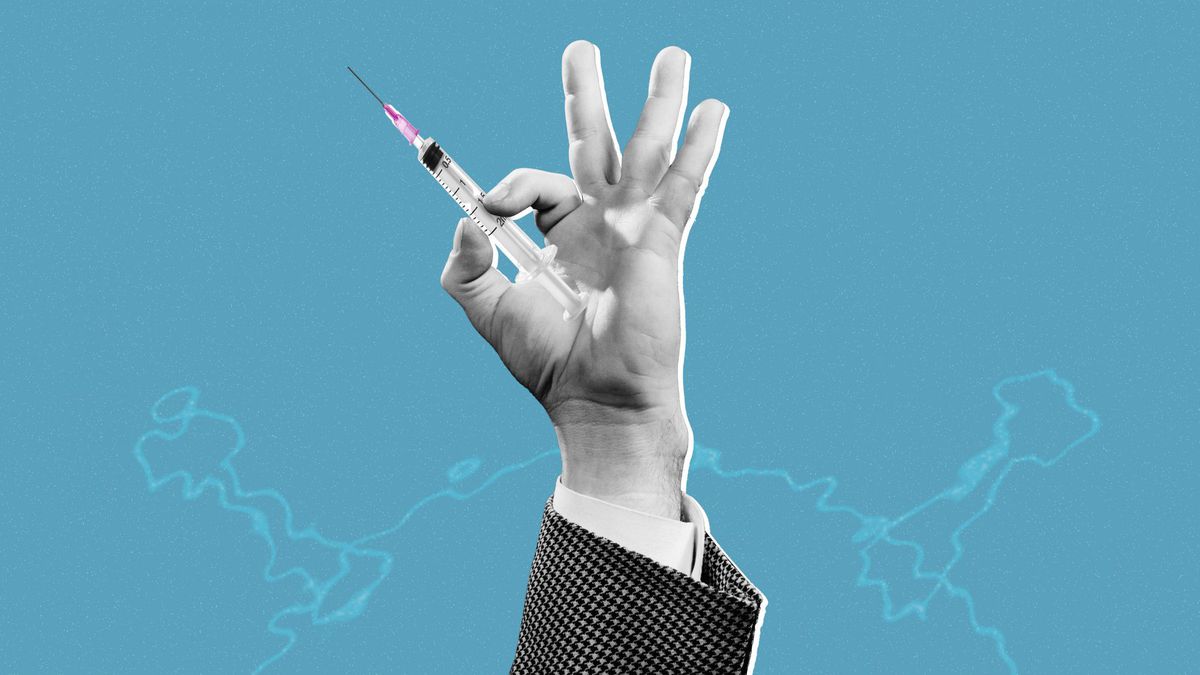You are here
Can You Still Spread COVID-19 Even After Getting Vaccinated, and the nedd to keep wearing a mask
Primary tabs
 Can You Still Spread COVID-19 Even After Getting Vaccinated? Here's What We Know So Far CDC Director Dr. Rochelle Walensky had said that "vaccinated people do not carry the virus," but experts are saying to still use caution. Health.com
Can You Still Spread COVID-19 Even After Getting Vaccinated? Here's What We Know So Far CDC Director Dr. Rochelle Walensky had said that "vaccinated people do not carry the virus," but experts are saying to still use caution. Health.com In controlled clinical trials, the Pfizer-BioNTech and Moderna vaccines have already proven that they can protect against COVID-19. And earlier this week, the Centers for Disease Control and Prevention (CDC) announced that its new study showed that the vaccines' effectiveness holds up in a real-world setting too.
CDC Director Rochelle P. Walensky, MD, talked about the new data in an interview on The Rachel Maddow Show on Monday, saying that the study results suggest "that vaccinated people do not carry the virus, don't get sick."
The new data and the director's subsequent comments have led many to wonder whether this means that vaccinated people can't pass the virus on to those who aren't vaccinated.
First, a bit about the study: It included 3,950 health care personnel, first responders, and other essential and frontline workers, whose jobs put them at greater risk than the general population of being exposed to the virus. Of these workers, 2,479 (62.8%) received both recommended doses of either the Pfizer or Moderna vaccine and 477 (12.1%) received only one of the doses.
For 13 weeks, between December 14, 2020, and March 13, 2021, the CDC routinely tested the workers for COVID-19. The tests were done each week and also as soon as anybody started to feel potential symptoms of the virus. The study participants were from six states: Arizona, Florida, Minnesota, Oregon, Texas, and Utah.
The risk of infection was reduced by 90% among those who were fully vaccinated (meaning at least two weeks had passed since their second dose). Partial vaccination also provided protective benefits, reducing the risk of infection by 80% two weeks after receiving the first dose. And these risk reductions go for not only symptomatic infections, but also asymptomatic and pre-symptomatic infections.
"This study shows that our national vaccination efforts are working. The authorized mRNA COVID-19 vaccines provided early, substantial real-world protection against infection for our nation's health care personnel, first responders, and other frontline essential workers," Dr. Walensky said in a statement. "These findings should offer hope to the millions of Americans receiving COVID-19 vaccines each day and to those who will have the opportunity to roll up their sleeves and get vaccinated in the weeks ahead. The authorized vaccines are the key tool that will help bring an end to this devastating pandemic."
So is it less likely that vaccinated people would pass the virus to others, vaccinated or not? Amesh A. Adalja, MD, senior scholar at the Johns Hopkins Center for Health Security, says that that is what the study and Dr. Walensky's comments seem to suggest. "As the CDC director has stated, the new study provides real-world evidence that shows that if you are fully vaccinated, you are virtually unable to be infected with the virus or serve as a vector of spread," he tells Health.
But a spokesperson for the CDC has provided some clarity about what Dr. Walensky said on Maddow's show, telling The New York Times that "Dr. Walensky spoke broadly during this interview. It's possible that some people who are fully vaccinated could get COVID-19. The evidence isn't clear whether they can spread the virus to others. We are continuing to evaluate the evidence."
And so, the CDC is still recommending that fully vaccinated people follow its COVID-19 safety guidelines, which include avoiding medium- or large-sized gatherings and wearing a mask in public. Especially because, while public health experts believe that the latest study suggests that vaccinated people can't pass on the virus since they do not contract it in the first place, it's still something that the CDC needs to confirm. That's because the CDC is still learning, through studies and real-word situations, just how well COVID-19 vaccines keep people from spreading the disease. "Early data show that the vaccines may help keep people from spreading COVID-19, but we are learning more as more people get vaccinated," the agency says.



Recent Comments